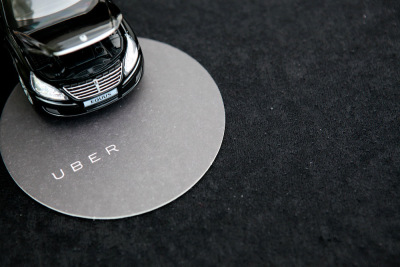Uber, the controversial transportation startup valued at $40 billion+, is facing more heat, this time in Europe. A Dutch court today ruled to bar use of the company’s UberPop ride-sharing service because of the lack of livery licensing for drivers.
A report in Reuters notes that the Trade and Industry Appeals Tribunal in The Hague ruled that drivers for UberPop could be fined €10,000 ($12,300) for violating the order, while Uber itself could face fines of up to €100,000 ($123,000) per violation.
Other Uber services in Amsterdam, specifically the more premium UberBlack and UberLux options, remain in operation.
Uber has responded to the ruling with a statement that it will appeal, that the law is outdated, and that it will continue to offer the service, as it has in other countries where it has been slapped with fines:
“This is merely the first step in a long lasting legal battle. We will appeal,” a spokesperson noted in a written statement. “Today’s decision of the judge does not say anything about the legality of uberPOP, it only says something about the fines. Moreover, the judge based today’s decision on an outdated law from the year 2000. Back then there were no smartphones or any other innovative ways to safeguard quality. We will continue to offer uberPOP to make sure that the innovation that we initiated continues to spread. Now it is up to the government to speed up modernising the law and not wait until the end of 2015. We will provide all the help that we can give to support this process.”
As background, UberPop lets a private individual register to be an Uber driver, using his/her private car. When UberPop (as in “pop-up” taxi service) first launched in The Netherlands in July 2014, the company promised rides that were less than half the price of a normal taxi.
But since then, it has been under fire in the country and elsewhere. In October, UberPop drivers were being fined €4,200 on the spot in Amsterdam and getting arrested for offering rides. The drivers were deemed to be illegal because they did not hold relevant permits to offer paid car services. It was this action that Uber had been protesting in the Appeals Tribunal.
UberPop has been controversial elsewhere, too, also facing injunctions of the cheaper service in Germany for similar reasons, and — just yesterday — in Italy as well. In Germany and Belgium, Uber now offers UberPop at a “no-profit” rate — that is, at a fee that is estimated to be just the cost of running a car — so that it can keep services running in the country (and potentially upsell users to tiers that remain legal, and keep drivers signed up to its fleet) while it irons out its regulatory issues.
Uber typically takes a 20% cut of the UberPop fee when it’s not being run at the no-profit rate.
The news comes in the wake of a lot of other highs and lows for the company.
Uber last week announced another $1.2 billion in funding at a $40 billion valuation — money that the company said it would use in part to further its already-aggressive international expansion.
Just the day before that, Uber actually announced that it would be moving a large part of its mobile engineering efforts to Amsterdam — by way of a bulk hiring of developers from a studio that has been working on Uber services for years already.
Given the tricky regulatory and PR situation in Europe, a cynical observer might accuse the company of looking for a good publicity opportunity: a “new jobs” story could act as a counterbalance to some of the more negative news hitting Uber in the region, and specifically in The Netherlands.
It could also be interpreted as a way of Uber essentially setting out its stall and showing that it has no intention of retreating in the face of some of the opposition.
The company has been facing controversy elsewhere. Over the weekend, the company’s ambitions in India were massively dented after an Uber driver was found to have raped a passenger. It turned out the driver was not licensed and had disabled his GPS services that let Uber track drivers that are in its fleet.
Uber has also faced problems in other cities over licensing terms for its drivers, facing up to bans in places like Toronto and Las Vegas.
Updated with comment from Uber, more story background.
